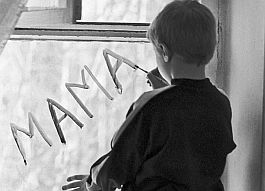EU – Baltic States, Law and Regulations, Legislation, Lithuania, Society
International Internet Magazine. Baltic States news & analytics
Thursday, 25.04.2024, 11:00
Lithuanian president strives to promote adoption
 Print version
Print version |
|---|
The president's amendments suggest limiting the practice of putting children under 3 years to child care homes. The youngest children would be sent to guardianship institutions only in exceptional cases when they need specialised health care or nursing. Also, in those cases when the child's family cannot provide him/her with proper care and community services in their municipality are not properly developed.
The proposed amendments also provide for a stricter limitation of the duration of temporary child care in order to speed up the adoption process. Currently, temporary child care in child care homes last up to 5 years or longer, which is one of the main obstacles for children to be adopted by new families.
"Children should be raised in families. We must make sure that the interests of our youngest citizens are protected and they have all the opportunities of growing in family environment. Lithuania must get rid of the Soviet legacy and reduce the number of children in care institutions," the president said.
Evaluating the way the states implement the UN Convention on the Rights of the Child, UN Committee on the Rights of the Child said that Lithuania should reduce the large number of children who are taken away from their parents and placed in institutions, especially children under the age of 3 years.
Childcare system in Lithuania is one of the most problematic in the EU. The country has more than 100 institutions of custody of children, which is not in line with international practice.
There are about 10 thousand children left without parental care in Lithuania. At the end of 2013 almost 60% of them grew up in families of guardians, 37% – in the institutions, and the rest – in families.








 «The Baltic Course» Is Sold and Stays in Business!
«The Baltic Course» Is Sold and Stays in Business!

